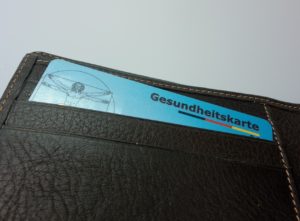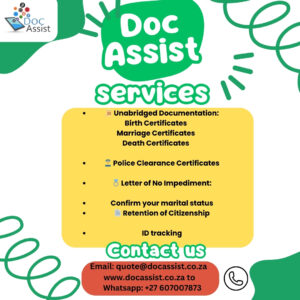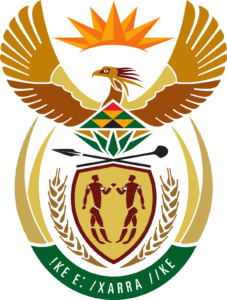Thinking of starting or expanding your family in Germany? Luckily the standard of German healthcare is very high and Germany has great maternity and paternity benefits, but there are some differences between having a baby in Germany v.s giving birth in South Africa that are good to be aware of upfront. Below gives an overview of what to expect for parents-to-be and what the process is.
Health insurance
The first step for any expectant mother should be to make sure that you are covered by German health insurance. Public health insurance provides comprehensive cover for expectant mothers, everything from check-ups to childbirth. If you have private health insurance, you should check with your provider to see what is covered.

Medical
Health insurance is mandatory for everyone visiting or living in Germany.When living in Germany you can either take our private (privaten Krankenversicherung – PKV) or
Prenatal care in Germany (Schwangerschaftsvorsorge)
If you discover you’re pregnant, your first step should be to make an appointment with your gynaecologist (Frauenarzt). This appointment normally takes place around eight weeks after conception. If you are employed, you can request a confirmation of pregnancy (Schwangerschaftsbestätigung) to present to your employer. You should tell your boss about your pregnancy not later than three months after it is verified; So that he/she has enough time to find a substitute for you. Once you notify your employer of your pregnancy, your Maternity Protection kicks in.
At this point, your gynaecologist will also give you a document called a Mutterpass (mother’s passport). In the Mutterpass the doctor will note everything from your future appointments, tests, health information and due date, so you need to bring this document to any future appointments as well as to the hospital when you give birth.
After this, you will attend 12 regular check-up appointments: one every four weeks until week 32 and then every two weeks thereafter. (more if you have a complicated pregnancy or become overdue, in which case the doctor might want to see you every second day.) . In addition to the normal scans which take place at nearly every gynaecologist visit, most people get an anatomy ultrasound (Feindiagnostik) or 3D scan. Your doctor should recommend a specialist around the 25th week for this. You will receive a referral and can usually make an appointment fairly quickly. This scan is a fascinating chance to see your baby in the flesh and diagnose serious issues. Near the end of the pregnancy, CTG (electronic fetal monitor, EFM) scans will be added. These external monitors measure Braxton-Hicks contractions and heart rate and take about an hour If you are employed, your employer is obliged to give you time off to attend these appointments. Routine care usually includes:
- Ultrasounds
- Urine analysis
- Blood pressure checks
- Weigh-ins
- Blood tests
- Pelvic exams
Pregnant women in Germany also have the option of having a possible chromosomal disorder in their baby diagnosed via a non-invasive prenatal test (NIPT). For a NIPT, a blood sample from the pregnant woman is examined. Currently, it is being debated in parliament whether your health insurance should cover this test, but at the time of writing this, you have to pay for it yourself.
A Schwangerschaftsdiabetes test (for gestational diabetes) is administered between 24 and 28 weeks. Though this only affects between 2 to 14 percent of pregnant women it can significantly complicate a pregnancy. The glucose tolerance test is simple. After some light fasting, you must drink a syrupy mixture (50g glucose in 200 ml water) and after an hour, a blood sample is taken to check your blood sugar level and see if your body has processed it appropriately. If the reading is too high (which happens 15 to 23 percent of the time) a similar three-hour test is administered. Most women don’t turn out to have gestational diabetes. And even if you do, it is simply a matter of management with most babies unaffected and the condition disappearing soon after birth.
You will also be offered 2 toxoplasmosis tests during your pregnancy which currently is not covered by statutory health insurance.
Helpful links: Pregnancy scans in Germany
Struggling to fall pregnant.
Struggling to fall pregnant and you have been trying for a year? If you are younger than 35, the costs for the investigations of the causes for your infertility will be covered 100 % by your health insurance. If you are above 35 then the time you have had to try to conceive naturally gets reduced to 6 months. There after what your health insurance cover for the actual treatment depends on the treatment, your marital status and the type of insurance you have.
Read more on fertility treatment and cost here.
Choosing a hospital
In Germany, you have three options for giving birth:
- In a hospital
- At a birthing house
- At home
Some hospitals require you to book way in advance, even as early as 13 weeks into the pregnancy, while others only take registrations two months before your due date, so make sure to find out when you need to register at your preferred hospital to avoid disappointment or having to do paperwork between contractions. Most hospitals offer an information evening (Infoabend), during which prospective patients can have a look around the facilities, meet with the staff and ask questions. Some hospitals offer private family rooms at an additional cost (ranging from 60 euros p/n to 150 euros p/n if you prefer more privacy after the birth, while others have shared rooms. If you would like a family room it is best to book in advance. You will need your Mutterpass, your passport, and possibly a copy of your birth certificate (and marriage certificate if you are married) when doing the registration.
Where you give birth is a very personal choice. Here are some pros and cons.
1. Hospital birth options:
While delivery rooms are almost all equipped with the traditional hospital bed, many also have an alternative available to aid in more comfortable labour. Some delivery rooms has jacuzzi tubs for water births, king-sized beds allowing dads to take an active role in the delivery or birthing stools and chairs.
Some hospitals also have special NICU centre.
Another benefit of a hospitals are their full range of surgical capabilities and pain medication, which is limited during in-home or birthing house deliveries. (Peridural Anästhesie (PDA)) or a Caesarean section are not offered at birthing homes or home births.
There are some disadvantages to giving birth in a hospital, though. The clinical environment is less intimate than the other options, and you are more likely to be hooked-up to a heart-rate monitor and an IV administering the contraction-inducing Pitocin. Hospitals will always chose the lowest risk in order to prevent facing legal problems, so they may not be very supporting if the mother for example chooses to wait a little longer before being induced where as a birth house might let you wait a bit linger is there is no concerns.
2. Birthing house
For many people, a birth house is a nice compromise between a home birth and hospital. These facilities offer a more intimate and private environment for the delivering mother. The births are attended by a midwife and the delivery rooms are cosily furnished for a homey feel. As with some hospital rooms, birthing houses are often also equipped with big tubs for delivery, or just helping women relax during the process. Mothers can also choose birth stools, various positions in bed and using other specialised equipment to help them deliver as comfortably as possible.
Birthing houses intend for women there to have natural births, so they are less likely to administer Pitocin and they don’t do epidurals. There is also no option to overnight at a birth house. Women who deliver at birth houses do so only on an outpatient basis. In a worst-case scenario, a mother experiencing a difficult delivery would also have to be transferred mid-labour to a hospital. If this is done by ambulance, the mother usually doesn’t have the option to choose which one.
3. All the comforts of home
Home births are also an option in Germany and, like hospital and birth-house deliveries, are covered by medical insurance. Not all midwives attend home births, so it may take some time to find one. Mothers who want a home birth can also find a midwife practice or birth house that has the insurance to deliver in-home. Women who plan on a home birth will have to do a little more preparation, as they’ll be expected to have all non-medical supplies on hand. Most midwives have their own foetal heart rate monitors and basic medical kits containing clamps for the umbilical cord and stitches, but they will expect parents to gather a checklist of other supplies.
Most birthhouses won’t deliver twins, or babies lying in the breech position or treat women who have suffered complications in their pregnancy such as pre-eclampsia and gestational diabetes. Some also won’t accept women who are older than 40, while women delivering before their 37th week of pregnancy are also sent to hospitals.
Choosing a midwife (Hebamme)
Giving birth and caring for a newborn is a daunting task if you are in a strange country without your usual support structure. This is where a good Hebamme is worth gold. Towards the end of your pregnancy (or sometimes earlier), you will start meeting regularly with a midwife (Hebamme). They will come to your home, administer check-ups, and support you before, during and after the birth of your child. A midwife is usually the responsible person at your child’s birth, although it may not be the same midwife who administers your home visits.
You can select your own midwife, or be assigned one by your doctor. It is worth searching for one in advance (usually at around 12-15 weeks), as many can only take on a few patients at a time. Your health insurance should cover around 12 weeks of home visits from a Hebamme. In larger German cities, it is usually possible to find English-speaking midwives. The website Hebammensuche allows you to search for midwives according to location, language ability and specialism. Unlike in South Africa, your midwife will come to your home and weigh your baby, clean the umbilical cord and show you how to bathe the baby. Midwives can also help with breastfeeding problems and check on the progress of the mother’s healing. They are especially helpful for those who do not have a lot of family to support them in the early days of becoming parents.
Tips from our Facebook members
- Start looking for a midwife as soon as you find out you are pregnant, although it seems they will only take you on after your 12th pregnancy week. This might differ for each Bundesland. Do not wait until the 12th week to look for a Midwife. There is a big shortage of midwives in Germany. If you have trouble finding one, search for your local Hebammenzentrale.
- There are 3 types of hebamme. Some assist you before birth, some only during birth and some only after. It is worth checking your midwife’s specialities as they do not all do the same thing.
Prenatal classes (Geburtsvorbereitung)
Health insurance usually covers a prenatal course (Geburtsvorbereitung) which you can do around four weeks before your due date. (Later might be too late, and if you do it too early you may forget what you have learned. Classes are taught in German or English and you can either take them at your chosen hospital or through an alternative provider. Your hospital or midwife will be able to advise you on the courses available to you locally.
Going on maternity leave
Maternity leave is more of a requirement than a right in Germany – from six weeks before birth to eight weeks after (longer in the case of multiple or premature births). During this time, if you are employed, you continue to be treated as an “active employee” and receive your full salary as part of your maternity benefit. After your maternity leave period ends, you can apply for parental leave.
If you and/or your partner wish to take maternity leave and parental leave, you need to inform both your employer and your health insurance in advance. It is wise to take care of this at least several weeks before you intend to go on leave.
Giving birth in Germany
Germany favours vaginal birth, yet about 30% of deliveries end up in C-sections. It is possible to elect a C-section, but this is not something doctors always tell you. Unlike in South Africa, your usual gynaecologist will not be the one delivering your baby. After the 12th check-up, you usually go to the Hospital where you chose to have your baby. Hospitals usually ask you to come in for birth once your contractions are regular and spaced around 20 minutes apart (unless otherwise stated.) Call ahead to let them know you’re coming and bring your Mutterpass and overnight bag with you.
Getting to the hospital
If you don’t have your own transport and someone that can drive you, the best option would be to call a taxi as ambulances in Germany only deal with emergencies. If you have reason for concern, like bleeding, then you have to call an ambulance, but since ambulances are seen as emergency vehicles only, they have to take you to the nearest hospital, which might not be your preferred birthing hospital. When using a taxi or renting a car, take towels along and it is always a good idea to request a taxi with leather seats if you have the option.
At the hospital
You will be examined to make sure you are actually in labour and, if so, you will be checked into a birthing room (Kreißsaal). There a midwife will attend to you until it is time for the doctor to deliver your baby. The doctor will come and check in to see how far you are till the actual delivery and to make sure there are no complications.
After the birth, you will be given some time to recover before being taken back to the ward with your baby. A standard hospital stay following birth is between three and five days (longer if C-section delivery), but you are permitted to request early release. During these days you will be regularly checked by nurses, who can assist you with breastfeeding, changing the baby and baby bathing. Your baby will undergo several tests to make sure they are healthy. If you do decide to cut your hospital stay short, you would need to book with a paediatrician to do the U2 test (which usually gets done in the hospital.)
Leaving the hospital
When leaving the hospital, you will be given several important documents.
- Your Mutterpass containing all details of the delivery
- A child’s examination book (Kinderuntersuchungsheft), similar to a Mutterpass for the baby.
- A record of birth (Bescheinigung über die Geburt) signed by either the midwife or the doctor.
After the birth, you will continue to receive regular visits from your midwife to check on both you and the baby.
Rückbildungskurs
Post-partum pelvic floor training is very important and should be covered by your medical insurance.
It includes specific exercises for mothers after giving birth. The aim is to strengthen the muscles that are particularly stressed, such as the pelvic floor and the stomach.
Author: Martjie Louw and updated with suggestions from our FB members by Carla James
Related Content

Registering your child at birth
Your new baby needs to be registered at the registry office (Standesamt) within seven days of the birth in order to receive a birth certificate

Maternity Terminology
We created a searchable table to help you look up the German words you might need during and after your pregnancy.

Parental allowance in Germany (Elterngeld)
As new parents, both you and your partner are entitled to Germany’s generous parental allowance. If you or your partner has recently had a child,




 Luckily that is not the case with my ex and me.
Luckily that is not the case with my ex and me.














You must be logged in to post a comment.